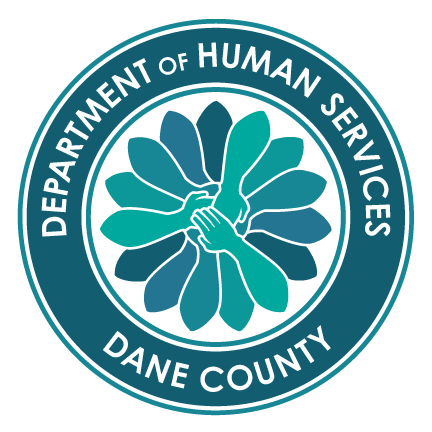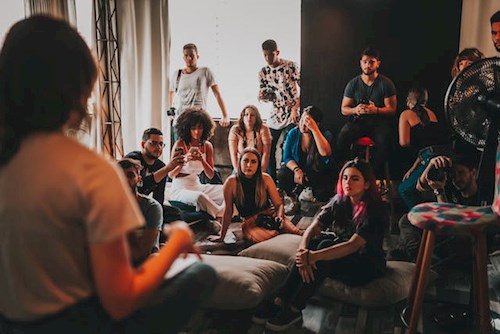
Whether you are new to engaging in mental health and substance use services or have been receiving services for any number of years, it is possible you have never heard of Peer Support Services. This is an individualized, nonclinical support that offers a unique perspective from most well-known mental health services.
In recent years, a movement has emerged to challenge the medical model approach to care. The new approach focuses on person-centered care with an emphasis on an individual’s strengths and the possibilities of recovery. This approach allows treatment providers and Peer Specialists to acknowledge that people are not their symptoms and that each individual has a unique set of strengths and abilities that can foster recovery, health, and wellness. The Peer Specialist profession is firmly rooted in the person-centered, strengths-based, and recovery-oriented approach to care.
Peer Support is a service in which individuals with lived experience of mental health and/or substance use challenges connect with individuals who are currently facing similar challenges to offer support and connection. This service is most often provided by individuals who are Certified Peer Specialist, Recovery Coaches, or Certified Parent Peer Specialists.
The Peer Specialist and Peer build a relationship that promotes respect, trust and connection, and empowers individuals to make informed choices to enhance their lives. The relationship is mutual and the service is self-directed, creating space for peers to explore, reflect and build a personal sense of meaning that promotes consent, autonomy and dignity. This can take place in individual and group settings.
The two people engaging in Peer Support meetings are both referred to as Peers, but we can designate the difference in who is who by using the title of Peer Specialist as the person who is supplying the service. Sometimes referred to as Certified Peer Specialist if certification has been achieved. The Peer Specialist is a nonclinical professional who has lived experience of mental health and/or substance use in their lifetime. Peer Specialists can be an active member of the peer’s treatment and recovery team and act as an advocate.
Certified Peer Specialists and Recovery Coaches receive training and go through a certification exam, but there is no hierarchy in Peer Support. Peer Specialists see individuals as experts on themselves and their own recovery. Peer Specialists help individuals embrace this through careful listening, curiosity and exploration, inspiring hope, and examining supports and resources for recovery. Peers and Peer Specialists can mutually support each other and share experiences.
Peer Services are person-centered. This means there is no one way to do Peer Support. Certified Peer Specialists are present to listen and lend support on what the peer themselves is looking for and what their goals are. Peer Support is a flexible, adaptive service that can occur not just in traditional mental health or substance use service settings, but also in the community. Peer Support focuses on strengths and is nonclinical. This allows for a more personal connection than what one might feel in therapy services.
A Certified Parent Peer Specialist combines knowledge gained from parenting children and youth with social, emotional, behavioral, mental health and/or substance use challenges with training to increase their skills to support other parents or those in a parenting/caretaker role.
For more information see: https://www.wicps.org/parent-peer-specialist
Recovery is deeply personal and there is no one way to define it. Peer Support does have some specific guiding concepts for it. In peer support, recovery focuses on strengths instead of pathology/diagnosing, weaknesses, or deficits. There is no one way to “recover”, but multiple pathways to it. It is defined and determined by the peer themselves. Recovery is an ongoing process. It does not stop or move backwards when a challenge arises. It is viewed as a part an individual’s path to recovery.
Recovery Coaching and Certified Peer Specialist have different training. Recovery Coaching specifically focuses on substance use recovery. Although Certified Peer Specialist may have lived experience with substance use, it is not guaranteed. Certified Peer Specialist training does include substance use. Recovery Coaches do not have to have their own lived experience of substance use. They may be related to or are close with individuals who have used or do use substances. Those individuals without their own lived experience can support people in similar situations to them.
It is possible for a Peer Specialist to be certified as both a Certified Peer Specialist and Recovery Coach.
First, it is important to note that an individual can be in a 12-step program with a sponsor, as well as having a Recovery Coach/Peer Support Specialist.
Here is how these supports are different. AA/NA sponsors are program oriented. They provide support and help sponsees through the 12-step program. Although a sponsee can be a sponsor to others, the relationship is viewed to be less mutual than a peer relationship. The sponsor is like a mentor who holds more knowledge and experience of the 12-step process than their sponsee.
Recovery Coaching and Peer Support do not follow a specific program. The relationship is driven by the peers’ needs and the peer relationship is seen more mutually. The peer perspective believes that individuals know themselves and their needs for recovery more than anyone else and thus they do not necessarily need to follow a 12-step program or any specific program at all if they do not feel it is beneficial to their recovery.
Training and certification is also a difference. AA/NA sponsors do not undergo specific training. Recovery Coaches and Peer Specialists have training and certification.

